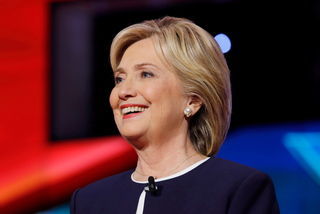Politics
In Politics, Is It Always Good to Be a Woman?
Disadvantages of the “Woman Card” to consider before insisting: "Deal me in"
Posted May 22, 2016

One of Trump´s recent attacks accused Hillary Clinton of playing the woman card, as if such a move would give her a political advantage. In response, although Hillary continues to insist she is running as the best qualified candidate, not merely as a woman, the Clinton campaign recently began offering supporters a literal “Woman Card,” pink with yellow lettering.[1] Yet according to some research, Clinton might want to rethink her highly publicized request to “Deal me in!”
When it comes to stereotypes of female politicians, women running for office do not share qualities typically attributed to women in general, such as warmth and empathy.[2] They are more accurately viewed as a subtype of women, “defined more by their deficits than their strengths.”[3] Female politicians are viewed as lacking positive female traits such as compassion and sensitivity, while also lacking positive male traits such as competence and leadership.[4]
Interestingly, by comparison, female professionals as a subtype were perceived as more competent, capable, and empathetic than female politicians.[5]
Secretary Clinton wisely attempted to counteract this stereotype early in her campaign by emphasizing her role not only as a politician, but a mother and grandmother. And as a woman. But did it work?
“It´s Good to Be a Woman”: The Perceived Advantage of Gender
Having held political office for many years, Hillary Clinton has been an outspoken advocate for her positions, and been assertive (some would say aggressive) in defending her agenda. Her success has been a double-edged sword, however, because fighting to break glass ceilings in a man´s world for so many years, some viewers who do not know her personally believe that Hillary Clinton does not exude the warm, nurturing, caring personality stereotypically associated with the female gender. The question now, is how, if at all, that will affect her chances in the general election.
In the wake of a recent spate of negative press over Donald Trump´s alleged treatment of women (rebutted by vehement denials and a counter-punching style of negative press fired right back at Secretary Clinton), the gender issue has established itself as a campaign hot button that is not likely to cool anytime soon. No doubt anticipating some of the gender-related issues, Clinton took steps to soften her image right from the beginning of her campaign.
Coronation or Conversation: Clinton´s Listening Tour—the Value of the Living Room Over the Virtual Chat Room
When Secretary Clinton began her campaign, she not only attempted to embrace her female gender, but she also made it clear that she was not looking for a coronation, but to engage in conversation as she embarked on a nationwide “Listening Tour.” Instead of dominating campaign stops with speeches and proclamations, she made an effort to listen to the voices of the American people as she participated in a series of smaller and more intimate gatherings where she could become better acquainted with individual voters and their concerns.[6]
This attempt to soften her image also served to dispel the notion that she felt entitled to the nomination due to her years of political experience and the (at the time) perceived lack of a serious opponent. (This was before Bernie Sanders proceeded to give her a run for her money—both figuratively and literally).
When Clinton reached out to connect personally with communities and neighborhoods, she resembled some of the candidates our parents grew up with, before social media sites like Twitter facilitated the virtual “war of words” dominating contemporary campaigns. Old-school candidates communicated with prospective voters by walking door to door and having live conversations in living rooms, not virtual chat rooms. In this fashion they won office the old fashioned way—by earning one vote at a time.
A Winning Hand Might Play the Human Card Instead of the Woman Card
With her political background, Clinton may win over more voters by emphasizing shared humanity rather than femininity. In the contemporary age of campaigning in the media, Clinton´s emphasis on personal interaction and listening instead of speaking can counteract and soften her professional image, making her appear more like a female professional than a female politician. Because ironically, the qualities and experience that make her “qualified” to run for President also evoke the research-based negative stereotype of women in politics.
Additionally, Trump´s references to Bill Clinton´s improprieties and Hillary´s role as an “enabler” may further humanize Hillary Clinton by evoking public sympathy for her plight, regardless of individual opinions about the appropriateness of her response to her husband´s actions. Unlike attacks on her credibility or her policies, criticizing Clinton as a wife for standing by her husband is probably not Trump´s best play for a winning hand.
Personal interaction can override gender stereotypes that plague female career politicians like Clinton, by allowing them to reestablish positive qualities traditionally associated with femininity. By playing “The Human Card,” Clinton can de-emphasize her political experience, and allow her to connect with voters by sharing the human experience.
[1] http://talkingpointsmemo.com/livewire/clinton-woman-card-fundraising
[2] Monica C. Schneider and Angela L. Bos, ”Measuring Stereotypes of Female Politicians,” Political Psychology, Vol. 35, No. 2 (2014): 245-266. Doi: 10.1111/pops.12040.
[3] Schneider and Bos, ”Measuring Stereotypes of Female Politicians,” 260.
[4] Schneider and Bos, ”Measuring Stereotypes of Female Politicians,” 260.
[5] Schneider and Bos, ”Measuring Stereotypes of Female Politicians,” 260.
[6] See, e.g., http://www.nytimes.com/2015/05/28/us/politics/hillary-clinton-tells-vot….




